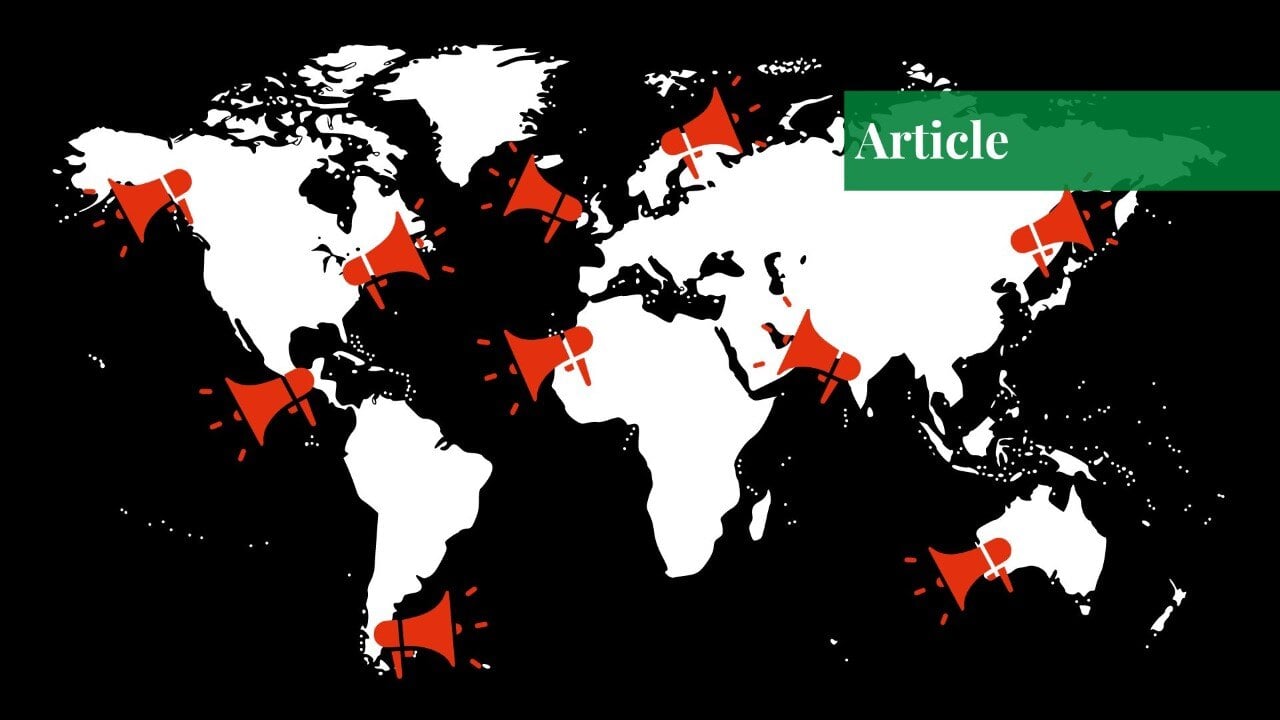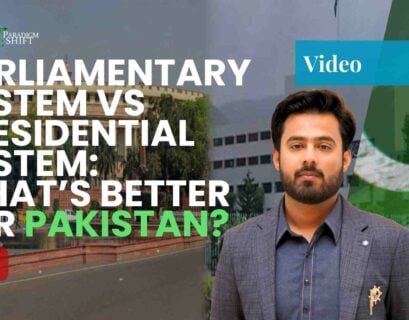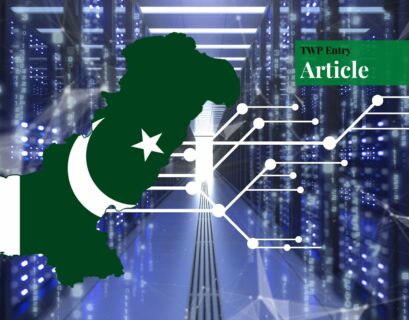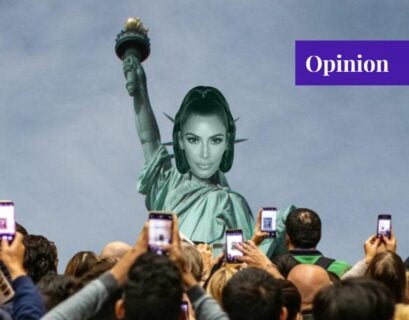Torchbearer CSS Academy – TBA Karachi ignites aspirations and transforms them into valuable knowledge and enthusiasm. They magnify talents and carve abilities to achieve dedicated success, by providing quality education for competitive exam aspirants who believe in themselves and their goals.
Digital Landscapes
The democratic process has always flourished through the liberation of ideas, political awareness, and the ability of a society to engage in civilized discourse. The amelioration of social media has provided the world an opportunity to achieve these to a greater and more valuable extent.
Social media is strengthening democracy through the increase in political knowledge of individuals through the uprise of political content and democratic engagement on it. The presence of significant entities and individuals related to democratic affairs on social media provides an enhanced opportunity for transparency and accountability.
Social media has provided equal opportunities for everyone to participate in democratic affairs. It has incentivized the rise of digital democracy through the ease of liberation of the ideas of the common man. It has strengthened democratic discourse due to the rise of political content on different platforms. In fact, political and democratic content is witnessing an uprise on social platforms, leading to an increase in the democratic engagement of individuals digitally.
Platforms like Twitter, Facebook, and YouTube act as a source of political information and news for individuals. Political content continues to rise on these platforms even outside the circle of news channels. Individual creators also provide valuable political and democratic content in order to cater to the demand of the public. The amelioration of social media and its extensions to every domain of life has stimulated the consciousness of people.
Public Awareness
Similarly, political engagement on social media has increased the knowledge of the masses on this matter. The struggling class that was generally unaware of the nitpicks of political affairs is also partaking in them. This increase in political knowledge is a direct consequence of the liberation of digital democracy through social media platforms.
One of the key advantages of the rise of social media is that state actors and government officials are present in it. Moreover, state-run channels and pages on these platforms are also a source of political enlightenment for individuals. This also enables the inter-connectedness of countries and strengthens the democratic discourse globally.
The presence of state officials and responsible entities facilitates accountability and transparency through these social media platforms. This enables the voice of the common man to be heard by the relevant authorities directly. As a result, the concerns and suggestions of the masses can be addressed openly, and this can have significant positive effects on the political and democratic discourse.
Women especially have been oblivious to democratic affairs historically. However, social media has been a catalyst to fill this void. It has increased democratic exposure to all genders. Even the people that were always considered to be ineffectual in the democratic discourse have significance today. Hence through social media, the democratic process has evolved to be inclusive to all and encompasses everyone.
Moreover, social media platforms have now become an important tool in the uplifting of political movements. Political and democratic movements are strengthened by the digital participation of the masses for a common cause. Movements like the ‘Black Lives Matter’ are an example of the success of social media in liberating and uplifting the democratic process.
The promotion of freedom of speech is one of the most significant impacts of social media. Social liberation through digital discourse has highlighted the importance of the right to free speech for everyone. People have been aligning with Voltaire’s idea that “I may disagree with you, but I will defend to death your right to say it”. This strengthens the democratic process and creates an environment that facilitates the participation of all individuals in it.
Social media also incentivizes the establishment of civil societies by gathering individuals interested in the uplifting of a common cause. Digital engagements have made it easier to gather individuals and ultimately form functional civil societies. The formation of civil societies through their social media groups and pages is also an example of this phenomenon. Communities or issues that are generally left out due to geographical or political complexities can have an impactful voice through social media platforms. The grievances that are neglected otherwise are highlighted through social media.
Obstacles
Despite all the merits that social media has in the uplifting of digital democracy and political participation, it also suffers from some setbacks. One of the major hurdles to the flourishment of the digital democratic process is the prevalence of false narratives on social media platforms. It prevails mainly due to the existence of groups that are uneducated, and to some extent, due to the fact that humans are emotional creatures as a whole.
Due to the ease of using social media, it is the perfect catalyst for the spread of misinformation. People often upload content without any effort to know the reality and without effort to do substantial research. This creates a distorted image of the matter and often leads to either spread of misconception or misinformation.
Social media is also used by entities to induce inflammation in the masses in order to achieve their goals. A one-sided image of democratic and political matters is shown to align it with personal interests. Similarly, coordinated hindrances to the democratic process are also facilitated through safe havens like groups and pages of social media. Even opposition to such practices leads to the exclusion from those groups, or in more serious cases, results in bans from the online platform entirely.
The deliberate spread of disinformation is also prevalent on social media. Entities invest heavily in the uplifting of disinformation regarding their adversaries. Due to this, social media can be considered a major tool for proxy wars and for sabotaging the image of enemies. Campaigns to malign the opponent can also be executed swiftly through the use of social media.
Many news outlets are observed to be focused on raising sensation to gain the attention of the viewers and increase their ratings. Their obsession with such media frenzy often leads to unfair reporting. The problems presented by social media in the embracement of digital democracy can be tackled by taking certain strategic measures such as the establishment of proper and independent fact-checking entities.
Neutral entities can be assigned the task to look for and then removing or flagging inappropriate or misleading content. Entities that spread disinformation are a key hindrance to the uplifting of digital democracy. Consequences are to be placed for companies or countries that are involved in the spread of disinformation.
Conclusion
In conclusion, social media is one of the most important tools for the development of democratic processes. It strengthens the political discourse by enlightening the general public and facilitating their participation. It has removed most of the prevailing boundaries that were present in the conventional political process. It has uplifted marginalized groups and promoted freedom of expression.
Concerns like disinformation, media frenzy, and false narratives are certain resistances to digital democracy. However, countermeasures like uplifting fairness, instilling moral values necessary for civilized discourse, and implementing laws to counter such hindrances are required.
If you want to submit your articles, research papers, and book reviews, please check the Submissions page.
The views and opinions expressed in this article/paper are the author’s own and do not necessarily reflect the editorial position of Paradigm Shift.



















